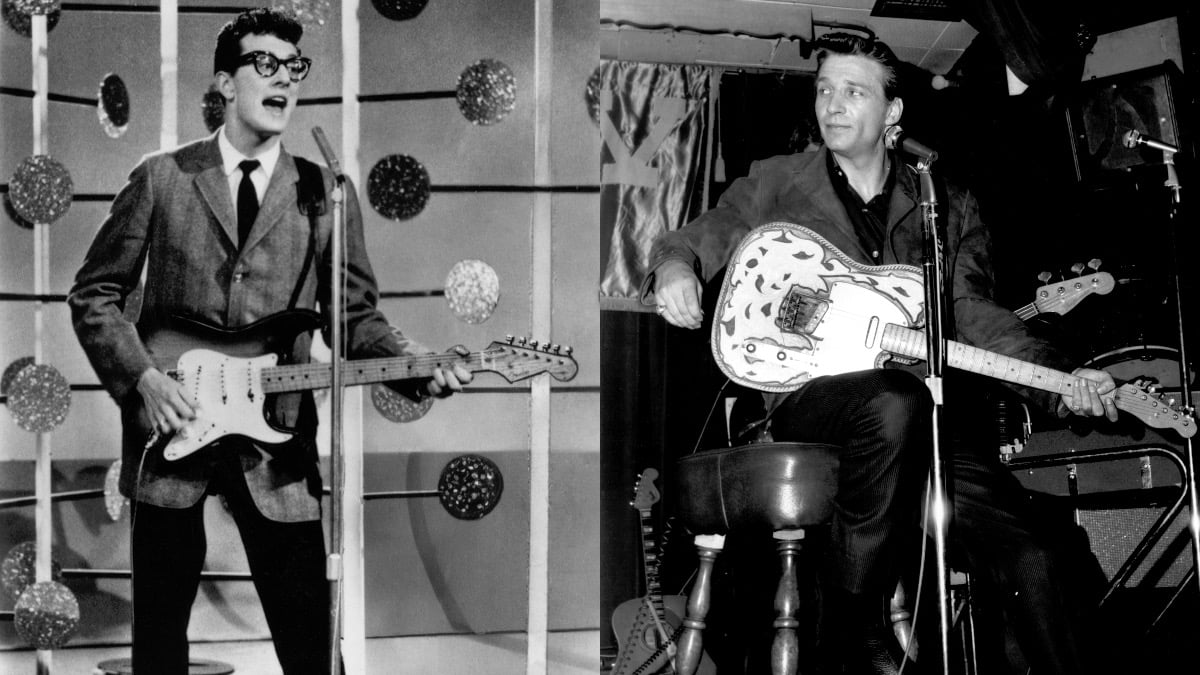On a bitterly cold night in Iowa, February 3, 1959, tragedy struck the heart of rock and roll. A small plane carrying three of the brightest rising stars of the era—Buddy Holly, Ritchie Valens, and J.P. “The Big Bopper” Richardson—crashed into a snow-covered cornfield near Clear Lake. That single event not only robbed the world of extraordinary talent but also carved out a date forever remembered as “The Day the Music Died.” The loss left fans in shock, the music industry in mourning, and one young man with a lifetime of guilt and sorrow he never truly escaped—Waylon Jennings.

At just 21 years old, Jennings was thrilled to be touring with Buddy Holly, playing bass on the grueling Winter Dance Party Tour. But life on the road was far from glamorous. The musicians endured long overnight trips across the Midwest in buses that often broke down, with heaters that didn’t work against the brutal winter chill. The endless miles and harsh conditions wore on everyone. After one especially miserable stretch, Holly, determined to spare the group more suffering, decided to charter a small plane to get to their next stop in Moorhead, Minnesota.
It was a decision that should have made things easier. But fate, and one simple act of kindness, would change everything. The Big Bopper was sick with the flu and dreading another frigid bus ride. Jennings, feeling sympathy for his fellow performer, gave up his seat on the plane. To him, it was nothing more than a compassionate gesture. To history, it became the moment that saved his life.
That night, as they prepared to part ways, Buddy Holly and Waylon Jennings exchanged what seemed like harmless banter. Holly teased, “Well, I hope your ol’ bus freezes up.” Jennings, with a grin, fired back, “Well, I hope your ol’ plane crashes.” The words were never meant seriously. They were the kind of playful ribbing that friends exchange to lighten the mood. But within hours, those words would become a source of torment that Jennings carried for the rest of his days.
The plane went down shortly after takeoff, killing everyone on board. For Jennings, the weight of his last remark was unbearable. Though he knew he wasn’t responsible for the crash, the cruel irony of his words haunted him. He often admitted that the memory left a scar he could never erase, no matter how much time passed.
While Jennings rarely spoke publicly in detail about that night, the experience shaped the man he became and the music he created. Survivor’s guilt could have crushed him, but instead, he transformed it into something else—art. His career took him far beyond being just a bass player for Buddy Holly. Jennings went on to become one of the leading figures of the outlaw country movement, a genre that rejected the polished, formulaic sound of Nashville in favor of something rawer, grittier, and more honest.
His music reflected the pain he carried and the toughness he developed in its aftermath. Songs dripped with authenticity, echoing the story of a man who had seen tragedy up close and lived with the shadow of it every day. Fans connected with him not only because of his unique sound but also because his work felt so real—born out of scars that would never fully heal.

Waylon Jennings’ life is a powerful reminder of how one small decision can alter the course of history. By giving up his seat, he survived a night that ended three promising lives. By living with the burden of his final words to Holly, he found a depth of feeling that poured into his music and influenced countless artists who followed. Jennings never shook the memory of “The Day the Music Died,” but in his own way, he turned that pain into a quiet tribute—an unspoken dedication to his lost friends and the second chance he never asked for but was given.
In the end, Jennings’ story is about more than tragedy. It is about resilience, survival, and the way art can emerge from heartbreak. The haunting memory of that fateful night in Iowa never left him, but it also pushed him to create a legacy that still resonates today. For millions of fans, his music serves as proof that even the deepest pain can be transformed into something eternal, something that ensures the music never truly dies.





